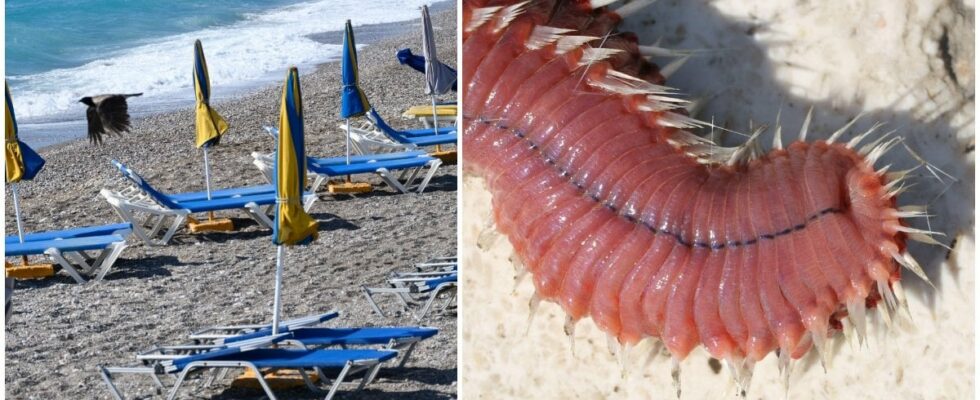Fireworms, a marine life form previously found mainly in the Caribbean and the tropical parts of the western Atlantic, have been observed in increasing numbers along the coasts of the Mediterranean Sea. The fireworm eats dead or dying animals that it happens to encounter. Although it does not feed on humans, its fuzzy spines can secrete a poison that can cause side effects.
Climate change and recent years’ heat waves are believed to be factors that contributed to the increase. These marine guests, whose bodies stretch up to 30 centimeters and whose bristles are loaded with thousands of poisonous spines, secrete a nerve toxin that causes dizziness.
Now a red warning has been issued to tourists and locals.
DO NOT MISS: How households spend their money during the holidays: “Risks”
“Burning Pain”
Researchers from OGS sounds the alarm about the fireworms’ poison. Their bristles, filled with stinging neurotoxins can cause discomfort and, in the worst case, an allergic reaction.
“They have stinging poisons in the bristles that can cause burning pain, edema, itching and numbness,” they write in a press release.
The researchers say that the fireworms also cause problems for the fishing sector because they get stuck in nets and fishing gear.
They are now working to limit the spread and are therefore urging anyone who sees or comes into contact with the worms to report it online.
READ MORE: The expenses to watch out for this summer: “Delicious money”
Photo: Henrik Montgomery/TTSpreads in popular holiday paradise
The fire worm has long been present in the Mediterranean, but recently its numbers have increased dramatically, especially in popular tourist destinations.
Scientists are now warning that the species is exhibiting “invasive” behaviour, particularly in the waters of southern Italy, including Sicily, Calabria, Puglia and Campania.
Italy is one of the most visited destinations for Swedish tourists. According to European ERVs travel barometer, Italy was the seventh most popular destination for Swedes in 2022.
Most people visit the country during the summer months of June, July and August, which coincide with the fireworm’s increasing presence.
May need care
In case of contact with the fireworms, it is recommended to carefully remove their spines. The experts’ advice to those who get stung is not to scrub the skin, but instead to use tape or dry fingers to try to remove the thorns.
Affected areas should then be washed with cold water, disinfected and cooled. Cortisone ointment can be used to relieve pain and itching.
In case of allergic reactions or fever, you should seek medical help.
READ MORE:
Samsung users? Here’s the mistake you don’t want to make when traveling
You should book the flight as far in advance as possible – save SEK 1,240
